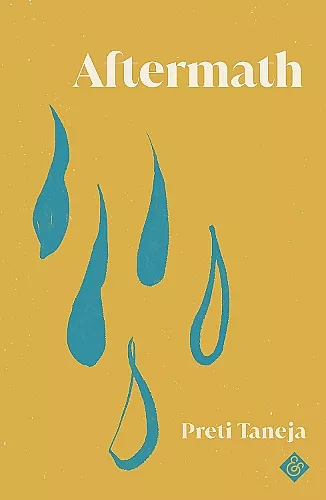Aftermath
Winner of the 2022 Gordon Burn Prize
Format:Paperback
Publisher:And Other Stories
Published:7th Apr '22
Should be back in stock very soon

‘Astonishing. Radical, beautiful, broken, intimate.' -Nikesh Shukla
In this searching lament by the award-winning author of We That Are Young, Taneja interrogates the language of terror, trauma and grief; the fictions we believe and the voices we exclude.
Usman Khan was convicted of terrorism-related offences at age 20, and sent to high-security prison. He was released eight years later, and allowed to travel to London for one day, to attend an event marking the fifth anniversary of a prison education programme he participated in. On 29 November 2019, he sat with others at Fishmongers’ Hall, some of whom he knew. Then he went to the bathroom to retrieve the things he had hidden there: a fake bomb vest and two knives, which he taped to his wrists. That day, he killed two people: Saskia Jones and Jack Merritt.
Preti Taneja taught fiction writing in prison for three years. Merritt oversaw her program; Khan was one of her students. ‘It is the immediate aftermath,’ Taneja writes. 'I am living at the centre of a wound still fresh. The I is not only mine. It belongs to many.’
In this searching lament Taneja interrogates the language of terror, trauma and grief; the fictions we believe and the voices we exclude. Contending with the pain of unspeakable loss set against public tragedy, she draws on history, memory, and powerful poetic predecessors to reckon with the systemic nature of atrocity. Blurring genre and form, Aftermath is a profound attempt to regain trust after violence and to recapture a politics of hope through a determined dream of abolition.
‘Stunning... [Taneja] turns a critical lens toward the way language shapes violence, suggesting that “power tells a story to sustain itself, it has no empathy for those it harms.” This poetic, urgent, and self-reflective work will delight fans of Valeria Luiselli’s Tell Me How It Ends and Claudia Rankine’s Citizen.’ Publishers Weekly, Starred Review
- Winner of the 2022 Gordon Burn Prize
- Shortlisted for 2023 British Book Awards Book of the Year in the ‘Discover’ category
ISBN: 9781913505462
Dimensions: unknown
Weight: 204g